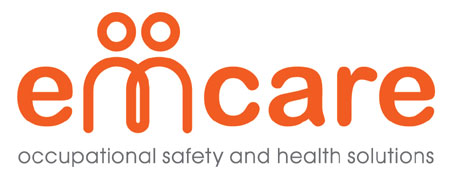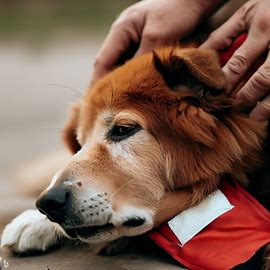First Aid for Dogs in Scotland in the Summer
The summer months in Scotland can be a glorious time to walk and hike with our furry friends, but it’s helpful to know the risks they face and how to provide them with first aid. Here are some of those risks and how to treat them.
Heatstroke: Dogs are susceptible to heatstroke, which can be life-threatening. In fact, one in seven dogs treated by vets for heatstroke dies. Symptoms include excessive panting, drooling, lethargy, vomiting, and collapse. So be sure to keep your dog cool and hydrated and don’t over exercise them on hot summer days. If you suspect heatstroke, move your dog to a shady area, wet them with cool water (especially on the neck, stomach, and inner thighs), and contact a vet immediately.
Burned Paws: Pavements and sand can get scorching hot, which can burn your dog’s paws. To determine if a pavement is too hot for your dog, put the back of your hand on it for seven seconds. If you can’t stand the heat, neither can your dog. If your dog’s paws do get burned, put them under cool, running water and consult your vet immediately.
Grass Seeds: Grass seeds, particularly those with barbed tips that resemble arrowheads, can burrow into a dog’s skin, especially the feet and ears. Keep the fur between your dog’s toes and around its ears trimmed. After walking in areas with long grass, check your dog for grass seeds and be aware of signs that one may have gotten under the skin, such as head shaking, excessive licking, redness, swelling, discharge, lethargy, or pain. Grass seeds can travel from the skin to internal organs, so it’s important to take your dog to the vet immediately if you suspect a seed has lodged in the skin.
Bee and Wasp Stings: While wasps don’t leave their stingers in the skin, bees typically do. If your dog is stung, check for a stinger. To remove one, use an item that is thin and flat, such as a credit card or fingernail to scrape it away from the skin below the venom sac. Removing it with your fingers or tweezers could cause more of the venom to be discharged into your dog’s body. Apply a cold compress to reduce swelling and monitor for any severe allergic reactions.
Ticks: Protect your dog from ticks by using a tick preventative treatment recommended by your vet. Regularly check your dog for ticks and remove them promptly using tick tweezers or consult your vet for proper tick removal. Ticks must be removed slowly and carefully to avoid leaving embedded mouth parts behind, as well as to prevent ticks from transmitting any disease they may be carrying.
Jellyfish Stings: If your dog is stung by a jellyfish, it’s crucial to take immediate action to minimize any potential discomfort or complications. Use a pair of tweezers, a gloved hand, or any other suitable material to carefully remove any visible tentacles from your dog’s skin without touching them yourself. Rinse the affected area with sea water. Don’t use fresh water, as it can cause the jellyfish’s venom to release more toxins. To reduce pain and swelling, apply ice wrapped in something that doesn’t allow fresh water to contact the wound. Monitor your dog for an allergic reaction or severe symptoms, such as difficulty breathing or excessive swelling. Consult a vet if you are at all unsure of treatment or how the dog is faring.
Remember, these tips are not a substitute for professional veterinary care. If your dog experiences any serious illness or injury, always contact a vet for guidance or assistance.
To learn how to provide first aid to humans, visit Stewart First Aid Training.
Sources:
https://www.countryliving.com/uk/wildlife/pets/a37603319/vet-warning-jellyfish-dog-sting/



